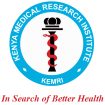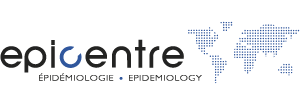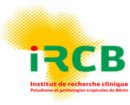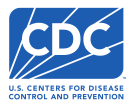Post-discharge malaria chemoprevention saves lives in children with severe anaemia in Benin, Kenya, Malawi and Uganda
Welcome
Children living in sub-Saharan Africa are at high risk of severe anaemia. Children who have recently recovered from anaemia in malaria-endemic areas remain at high risk of mortality. Recent studies have shown that three months of post-discharge malaria chemoprevention (PDMC) significantly reduce hospital readmissions and post-discharge deaths. As a result, the World Health Organisation (WHO) now recommends PDMC in highly malaria-endemic areas of Africa., However, optimal delivery strategies for this intervention remain unclear.
The PDMC Saves Lives Consortium was established to conduct implementation research aimed at determining how best to deliver PDMC in various health system contexts. Our goal is to translate findings into national policy guidelines. By facilitating the integration of PDMC into clinical practice, we can ensure that vulnerable children gain access to essential, life-saving medications.
Research will be conducted in four countries: Malawi and Uganda (currently adopting PDMC policy) and Kenya and Benin (not yet adopting PDMC policy) to identify key research questions for PDMC policy adoption and implementation. Trials co-designed with stakeholders in Benin and Kenya will evaluate at least two PDMC delivery strategies with a focus on adherence.
project summary
Young children in sub-Saharan Africa are at high risk of severe anaemia, associated with high mortality. Children who have recently recovered from severe anaemia in malaria-endemic areas remain at high risk of mortality for about 3-6 months after hospital discharge. Recent studies have shown that three months of post-discharge malaria chemoprevention (PDMC) can reduce hospital readmissions by 53% and post-discharge deaths by 77%. WHO now recommends PDMC in all highly malaria-endemic areas of Africa. However, the optimal strategies for how to deliver PDMC are not yet clear.
PDMC is a novel intervention recommended by WHO in June 2022. It has yet to be implemented, with Malawi and Uganda being the first in sub-Saharan Africa to initiate the adoption process. However, their respective ministries of health are still determining appropriate delivery mechanisms. This project addresses three critical evidence gaps identified by the WHO GDG: the feasibility of delivery/coordination between hospital, outpatient, and community settings, patient adherence to PDMC at scale, and the costs and coverage of alternative delivery approaches. Investigators will engage closely with national policy stakeholders to support PDMC adoption and implementation in four target countries, translating research results into clinical practice tools. Additionally, the project will work through regional networks and global stakeholders to promote widespread adoption of research outcomes.
Project Objectives and Stakeholder Engagement
The primary aim is to translate evidence from our PDMC implementation research into national policy guidelines and clinical practices that provide caregivers of vulnerable children in sub-Saharan Africa with access to life-saving medicines that prevent or reduce hospital readmissions and deaths. Key objectives include engaging with national malaria programme managers, district/county health services, community health workers and caregivers of sick children in Benin, Kenya, Malawi, and Uganda to explore their perceptions and considerations for PDMC implementation. Formative research will assess preferences for drug regimens and delivery strategies in these countries. Implementation trials in Benin and Kenya will evaluate alternative delivery strategies and their cost-effectiveness to optimize adherence and provide evidence-based data for decision-makers. The project will also focus on developing practical tools, job aids, and information to institutionalize PDMC into clinical practice and policy.
Expected Outcomes and Broader Impact
By the end of the project, the expected outcomes include the uptake of PDMC research results into clinical practices, ensuring caregivers of vulnerable children have access to proven life-saving medicines. Tools for implementing WHO PDMC recommendations will be developed, evaluated, and integrated into health systems to optimize delivery in sub-Saharan Africa. The project aims for the widespread adoption of PDMC research results into national, regional, and international policy guidelines. This includes translating PDMC research results into practical tools, job aids, and information that support institutionalization into clinical practice and decision-making tools for adoption into policies and guidelines.
This collaboration aims to turn PDMC research results into national policy guidelines and promote uptake into clinical practice, so that caregivers of vulnerable children in sub-Saharan Africa have access to life-saving medicines of proven efficacy that prevent or reduce hospital readmissions and deaths.
Research Themes
The PDMC SAVES LIVES consortium's workplan comprises of 5 key themes, each focusing on a distinct set of inter-related activities.
Our impact
The project aims to implement and evaluate the new WHO recommendation on PDMC in malaria-endemic countries, with a focus on influencing global guidelines and national policies. Key aspects include:
National Impact
Results from the clinical trials in Kenya, Malawi, and Uganda have already generated interest and support from local Ministries of Health (MoH) and stakeholders. Malawi and Uganda are considering adopting PDMC policies, while Benin and Kenya will conduct trials to provide evidence for policy decisions and identify optimal delivery strategies. The trials will involve regular stakeholder engagement, workshops, and collaboration with MoH and NMCPs to ensure effective integration into national practices.
Regional Impact
Policy briefs in English and French will be prepared and disseminated to guide the adoption of PDMC in other sub-Saharan African countries. These briefs will address local adaptation, cost-effectiveness, and implementation strategies. Results will also be shared at RBM subregional network meetings to facilitate broader adoption.
Global Impact
The WHO will utilise the research findings to develop global guidelines on PDMC implementation. The Principal Investigator (PI) and senior investigators have a strong relationship with WHO, ensuring that evidence generated is integrated into global recommendations. Rrsults are expected to be published within six months of data collection completion.
With thanks to our partners









The 3.5-year PDMC SAVES LIVES project, which runs from 1st July 2023 to 31st December 2026, is funded by the European and Developing Countries Clinical Trials Partnership (EDCTP3) and the European Union.